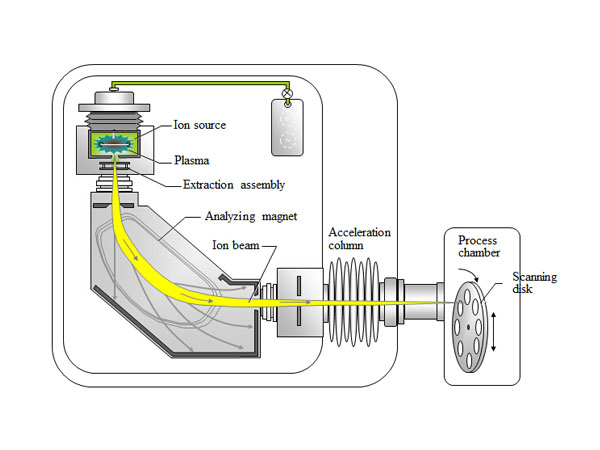About Ion Implantation Introduction
Ion implantation is an important engineering process by which ions of a material are accelerated in an electrical field and impacted into a target. The process will change the physical, chemical, or electrical properties of the target, which is often used in semiconductor device fabrication, metal finishing, and materials science research.

The heart of an implanter system is the beam path, where ions are generated, concentrated, accelerated, and guided at high speed to the target. So the materials of the beam path should withstand harsh conditions including high temperature, aggressive process gas, and strong magnetic fields. Currently, the beam path is made of TZM, molybdenum, tungsten, graphite, ceramics, and steel.
Stanford Advanced Materials supplies various ion implantation components made of molybdenum, tungsten, TZM (Titanium-Zirconium-Molybdenum alloy). Further info please send us your inquiry.
Ion Implantation Components Key Features:
Material Compatibility: Ion implantation components are crafted from materials with high purity, excellent thermal conductivity, and resistance to harsh environments.
Precision Design: Components are meticulously engineered to ensure accurate beam alignment, uniform dose distribution, and minimal scattering effects.
Wear Resistance: Ion implantation components are coated or treated to enhance wear resistance and minimize particle generation, prolonging their operational lifespan.
Temperature Control: Efficient heat dissipation methods are integrated to maintain temperature stability during ion implantation processes, ensuring consistent results.
Customization: Ion implantation components are designed to match specific equipment configurations, implantation parameters, and semiconductor device requirements.
Ion Implantation Components Applications:
Semiconductor Manufacturing: Ion implantation components are integral to doping semiconductor wafers, influencing their electrical properties for integrated circuits and other devices.
Advanced Research: These components are used in research facilities for experiments involving ion beam analysis, modification of materials, and surface treatment studies.
Photovoltaics: Ion implantation is employed in solar cell manufacturing to enhance light absorption and optimize energy conversion efficiency.
Materials Engineering: Ion implantation components play a role in tailoring material properties, such as hardness, conductivity, and corrosion resistance, for specific applications.
Nanostructuring: Ion implantation is utilized to create nanoscale patterns on surfaces for applications in optics, electronics, and biomaterials.
Ion Implantation Components Quality Assurance:
Our Ion Implantation Components are sourced from reputable manufacturers known for their dedication to quality, precision, and innovation. Each component undergoes rigorous testing to meet the stringent requirements of semiconductor manufacturing.


